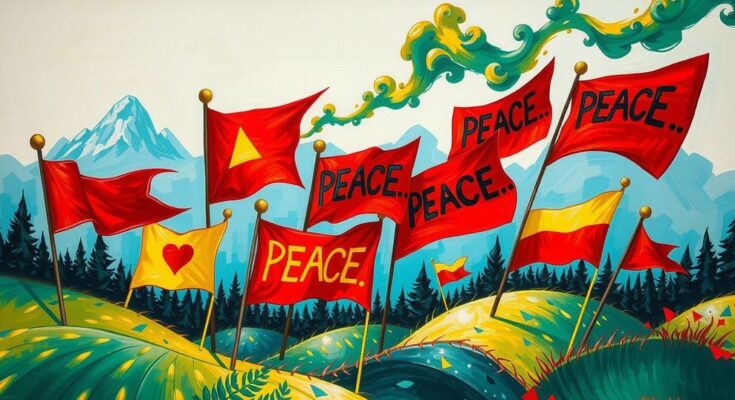Blessed Geza, a Zimbabwean war veteran, has called for national protests against President Mnangagwa, demanding the release of detained journalist Mhlanga and criticizing the government’s performance. His recent expulsion from Zanu-PF and calls for Mnangagwa’s resignation reflect deepening political unrest as the government prepares for potential protests amid threats from state security.
Blessed Geza, a prominent war veteran in Zimbabwe, has recently called for nationwide protests against President Emmerson Mnangagwa. Geza’s resurgence comes at a time when he is demanding justice for journalist Mhlanga, who is still detained. His calls for mass demonstrations have reignited discussions about the internal dynamics within the ruling Zanu-PF party, where he was expelled due to his opposition to the government’s policies.
Geza reminded President Mnangagwa of Vice President Chiwenga’s historical support following Zanu-PF’s recent actions against him. Concerns are growing regarding the government’s response to these planned protests, as State Security Minister has stated, “We are ready to deal with you” in a threatening manner. The ongoing instability within Zanu-PF is contributing to the nation’s volatile political landscape.
In light of the mounting tensions, many war veterans have echoed Geza’s sentiments, vocally criticizing the government’s performance and calling for Mnangagwa to resign. The political situation is further complicated by Geza’s prior expulsion from Zanu-PF, where he faced accusations of treason in relation to his anti-2030 crusade. As protests loom, the implications for Zimbabwe’s political future remain uncertain, raising questions about the government’s capacity to handle dissent and maintain order.
In summary, Blessed Geza’s calls for protests against President Mnangagwa signal a significant shift in the political landscape in Zimbabwe. His demand for the release of journalist Mhlanga and criticisms of the government highlight the unrest among war veterans. As tensions escalate, the government’s response may shape the future of political dissent and stability in the country.
Original Source: allafrica.com




